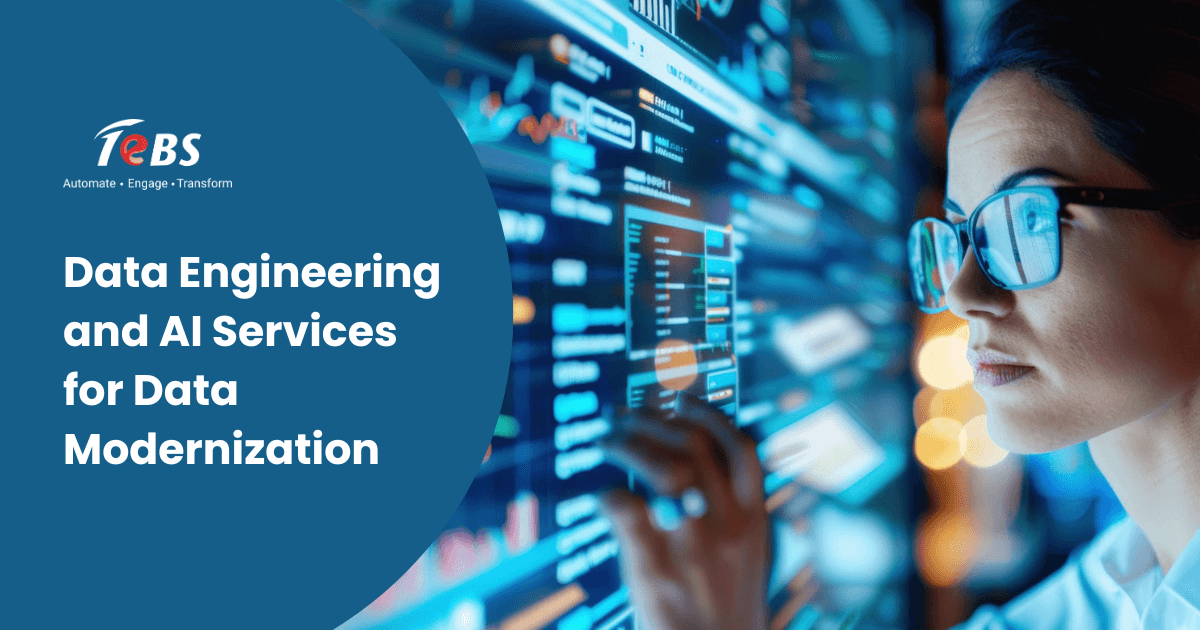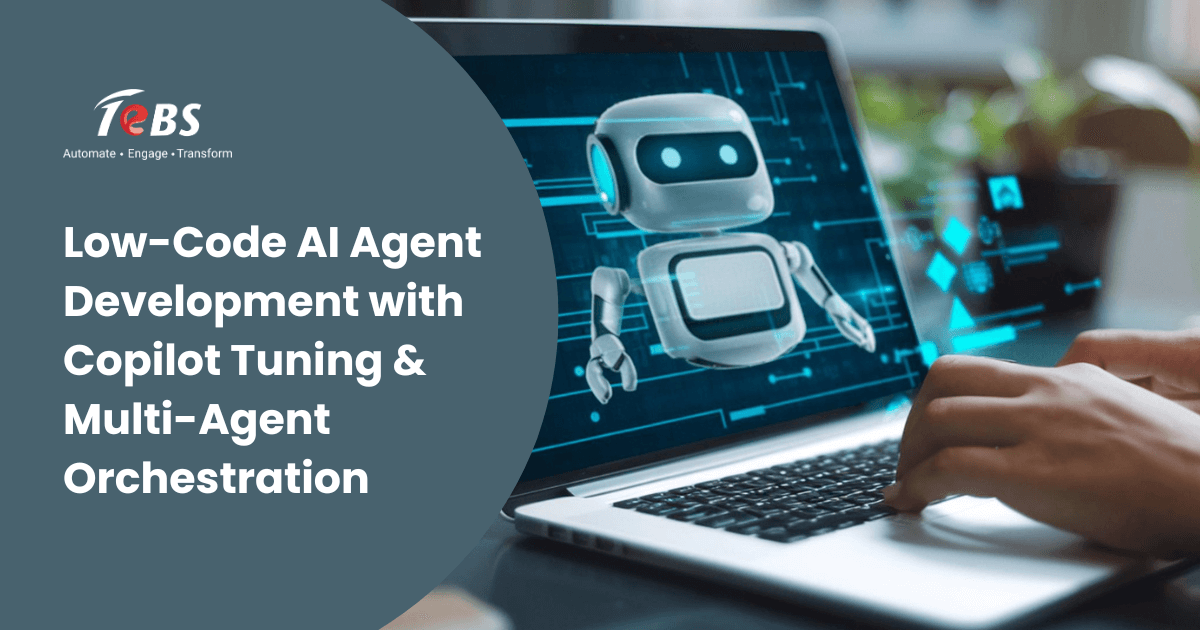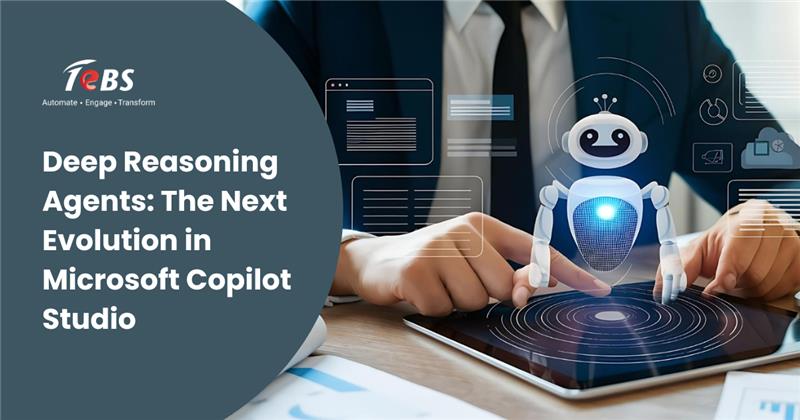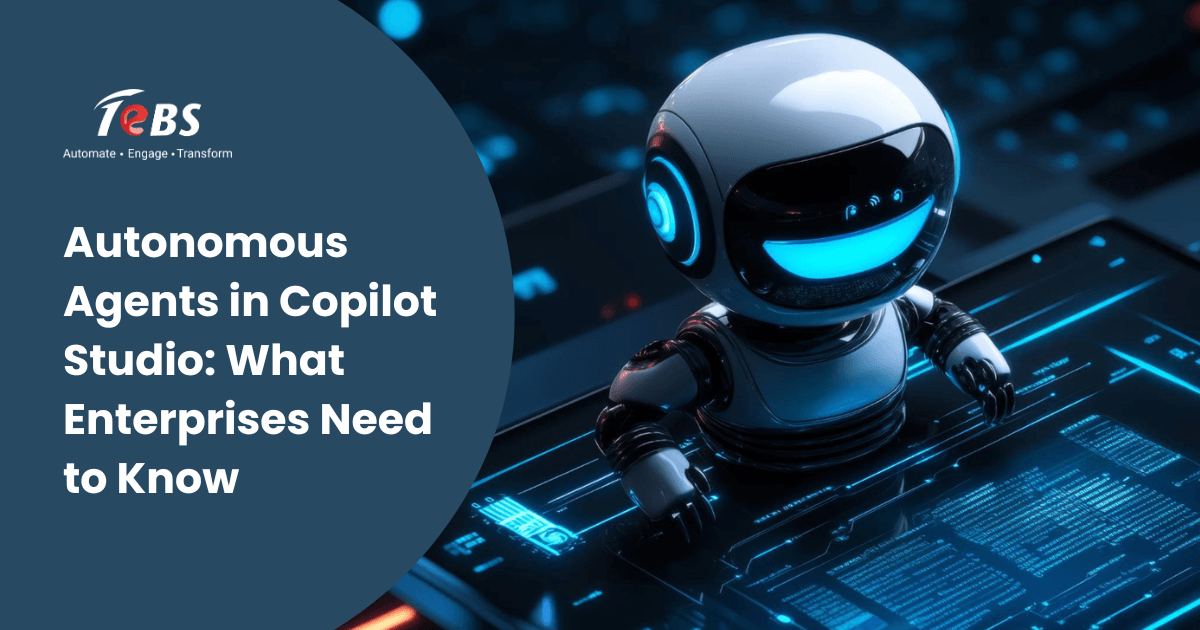Understanding Data Modernization
In the era of digital transformation, organizations are generating and managing unprecedented volumes of data. However, traditional data systems are often unable to handle the complexity, speed, and variety of today’s data. This is where data modernization becomes essential.
Data modernization is the process of upgrading legacy data infrastructure, tools, and practices to meet the needs of modern business operations. It focuses on creating agile, scalable, and secure data environments that enable real-time analytics, predictive insights, and AI-driven decision-making. At its core, data modernization involves moving away from rigid, siloed data systems toward flexible architectures such as cloud-based storage, distributed processing, and integrated data platforms. It ensures that organizations can access clean, structured, and reliable data when they need it, empowering them to respond faster to market demands and customer needs.
Role of Data Engineering in Modernizing Infrastructure
AI Data engineering plays a central role in enabling data modernization. It involves designing, building, and maintaining the data pipelines and architectures that support efficient data flow, storage, and access across an organization.
Modern data engineering ensures that data is collected from diverse sources, processed effectively, and delivered to the right systems for analysis. It replaces outdated batch processing systems with scalable, real-time data pipelines capable of handling massive data volumes with minimal latency.
Some of the key contributions of data engineering to modernization include:
- Data Integration: Combining data from multiple structured and unstructured sources into a unified platform.
- Data Pipeline Automation: Streamlining the ingestion, transformation, and delivery of data using automated workflows.
- Scalable Infrastructure: Leveraging cloud technologies, distributed processing frameworks, and containerized solutions for flexible scaling.
- Data Governance and Quality: Implementing processes that maintain data accuracy, consistency, and compliance.
- Metadata Management: Enabling easier tracking, discovery, and usage of data assets across the organization.
Without strong data engineering practices, modernization efforts risk creating fragmented systems that are costly and difficult to maintain.
How AI Services Enhance Modern Data Pipelines
While data engineering lays the foundation for modernization, AI managed services elevate data pipelines by enabling intelligent processing, analysis, and automation. AI can transform raw data into actionable insights faster and more accurately than traditional methods.
AI services can be embedded directly into modern data pipelines to enhance every stage of the data lifecycle:
- Data Collection and Classification: AI can automatically identify, classify, and tag incoming data for easier categorization.
- Data Cleansing and Enrichment: Machine learning models can detect anomalies, fill missing values, and enrich datasets with contextual information.
- Automated Transformation: AI can recommend or execute optimal transformation rules based on the data type and intended use.
- Predictive Analytics: AI-driven models can analyze historical data to forecast future trends and behaviors.
- Natural Language Processing (NLP): NLP services enable text analytics, sentiment analysis, and unstructured data processing.
- Real-time Decision-making: AI can trigger automated actions or alerts in response to real-time data patterns.
The combination of AI services with modern data pipelines allows businesses to move beyond descriptive analytics toward predictive and prescriptive analytics, unlocking deeper business value.
Benefits of Integrating AI with Data Engineering
Integrating AI with data engineering provides a range of benefits that go beyond operational efficiency. Together, they create an intelligent data ecosystem capable of supporting continuous innovation.
1. Faster Insights and Decision-Making
AI models can process and analyze large datasets far faster than traditional analytics tools, a benefit also highlighted by Gartner in its research on AI-driven analytics.”
2. Enhanced Data Quality
AI-powered data validation and cleansing reduce errors, inconsistencies, and redundancies, ensuring that analytics and AI models work with reliable inputs.
3. Greater Automation
Routine data preparation tasks can be automated with AI automation services, freeing up teams to focus on strategic initiatives rather than repetitive manual processes.
4. Scalability and Flexibility
AI-enhanced data pipelines can adapt to new data sources, formats, and processing needs without significant reengineering.
5. Competitive Advantage
Organizations that integrate AI into their data engineering workflows can innovate faster, respond proactively to market changes, and deliver more personalized experiences to customers.
By merging the robust infrastructure provided by data engineering with the intelligence of AI services, companies can establish a powerful, future-ready data environment through the AI Development service and Innovative Integration.
Real-World Applications and Use Cases
The combination of data engineering and AI services for data modernization is transforming industries across the globe. Some practical applications include:
Financial Services
Banks and financial institutions use AI-powered data pipelines to detect fraud in real time, automate compliance checks, and deliver personalized financial advice. Data engineering ensures that transactional and customer data flows seamlessly between systems for fast and accurate analysis.
See how organizations achieved operational excellence through AI-powered data modernization in our case study on Enabling Operational Excellence with AI-Powered Digital Transformation.
Healthcare
Modern healthcare organizations leverage AI-enhanced data pipelines to process patient data from multiple sources, such as medical imaging, lab results, and wearable devices. AI assists in early disease detection, personalized treatment recommendations, and operational efficiency.
Retail and E-commerce
Retailers integrate AI services into their data pipelines to optimize inventory management, forecast demand, and deliver tailored product recommendations to customers. Data engineering supports the ingestion of data from POS systems, websites, and supply chain platforms.
Manufacturing
Manufacturers deploy AI-driven analytics to predict equipment failures, improve quality control, and optimize production schedules. Modern data engineering ensures that data is collected from diverse sources, processed effectively, and delivered to the right systems for analysis using AI cloud security solutions.
Public Sector
Government agencies use AI-powered data platforms to manage citizen data, improve public services, and detect fraud or irregularities in large datasets. Data engineering ensures compliance, security, and seamless integration of diverse information systems.
These examples highlight how combining AI with modern data engineering unlocks significant operational and strategic benefits.
Key Considerations Before Implementation
Before embarking on a data modernization initiative powered by data engineering and AI services, organizations should address several important considerations:
1. Data Strategy Alignment
Ensure that modernization efforts align with the organization’s overall data strategy, business goals, and digital transformation roadmap.
2. Infrastructure Readiness
Evaluate whether existing infrastructure can support modern cloud-based and AI-enabled data pipelines. This may require upgrading hardware, software, or network capabilities.
3. Data Governance and Compliance
Implement strong governance frameworks to ensure data quality, security, privacy, and regulatory compliance throughout the modernization process.
4. Talent and Skills
Modernization requires skilled data engineers, AI specialists, and data scientists. Organizations may need to upskill internal teams or partner with experienced service providers.
5. Scalability and Flexibility
Choose solutions that can scale with growing data volumes and adapt to emerging technologies and business requirements.
6. Change Management
Plan for cultural and operational changes within the organization to ensure smooth adoption and maximize the benefits of modernization.
By addressing these considerations early, organizations can avoid costly missteps and ensure that modernization initiatives deliver long-term value.
Conclusion
Data modernization is no longer an option but a necessity for organizations seeking to thrive in the digital economy. Data engineering provides the foundation for creating robust, scalable, and efficient data infrastructure, while AI services add intelligence, automation, and predictive capabilities to modern data pipelines.
The combination of these two disciplines enables businesses to transform raw data into actionable insights, improve operational efficiency, and deliver exceptional customer experiences. From financial services and healthcare to manufacturing and the public sector, organizations that embrace AI-driven data modernization gain a significant competitive edge.
Total eBiz Solutions (TeBS) offers comprehensive data engineering and AI services designed to modernize data infrastructure and unlock the full potential of enterprise data. Our expertise in building intelligent, scalable data ecosystems ensures that your organization is prepared for the future of data-driven decision-making.
Partner with TeBS to accelerate your data modernization journey and achieve measurable business outcomes.
Contact us at [email protected] to discuss how our data engineering and AI services can help you transform your data into a strategic advantage.
Frequently asked questions
Q1: What is data modernization and why is it important?
Data modernization is the process of upgrading legacy systems to modern, cloud-based, and AI-ready architectures. It ensures scalability, agility, and real-time insights for smarter decision-making.
Q2: How does data engineering support modern data pipelines?
Data engineering builds and maintains pipelines that collect, process, and deliver data efficiently. It ensures integration, governance, scalability, and automation for reliable analytics.
Q3: What AI services can enhance data engineering processes?
AI services such as automated data cleansing, anomaly detection, predictive analytics, and natural language processing reduce manual effort and add intelligence to data pipelines.
Q4: How does integrating AI improve data quality and decision-making?
AI improves data quality by detecting inconsistencies, enriching datasets, and delivering predictive insights—resulting in faster, more accurate, and proactive decision-making.
Q5: Which industries benefit most from AI-powered data modernization?
Industries such as finance, healthcare, retail, manufacturing, and government leverage AI for fraud detection, predictive maintenance, personalized services, and operational efficiency.





